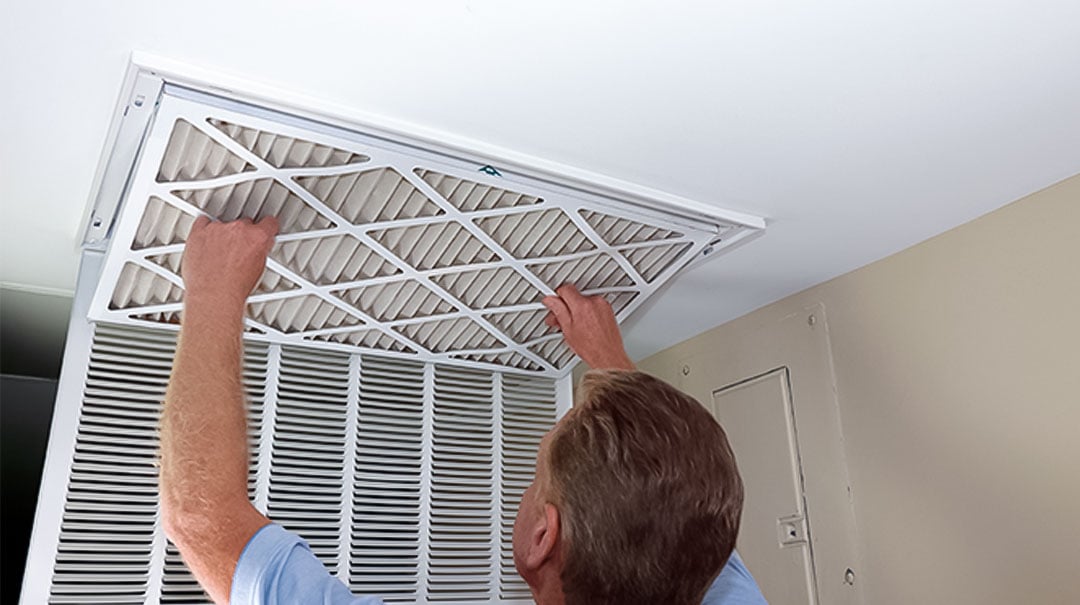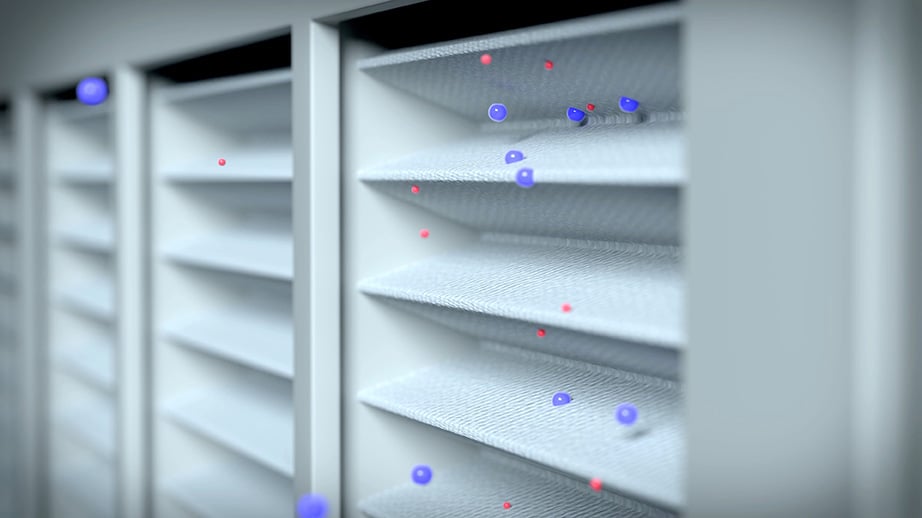All About HVAC Filters: Commonly Asked Questions
In this post:
- The lowdown on all things HVAC air filters
- Why HVAC filters are essential
- Commonly asked questions about HVAC air filters
 How often should you replace HVAC filters?
How often should you replace HVAC filters?
Generally, it’s recommended to replace your HVAC air filters at least every 90 days (3 months) but this timing could be different based on several factors specific to your building. A good rule of thumb is to replace them monthly. Setting your calendar to change your filters on the first of every month will ensure the air in your building is as fresh as possible.
Read our guide on how to change a commercial HVAC filter here >
How do HVAC Air Filters Affect IAQ (Indoor Air Quality)?
The primary job of an HVAC filter is to screen out any particles, even microscopic ones, from going through the HVAC system. Air pollutants can be particulate matter or even gas. There are many things that air filters can help screen and trap including:
- Dust
- Dust Mites
- Spores
- Mold
- Viruses
- Pollen
- Pet Dander
- Hair
- Bug Parts
- Lint
- Ash
- Pesticides
- Tobacco, wood, or food smoke
- Paint or other vapors
- Cleaning product fumes
Do HVAC air filters help save money?
They do! The Department of Energy reports that replacing dirty filters with clean air filters can reduce your energy consumption by up to 15%. When you combine that with the fact that your HVAC system is responsible for nearly half your energy usage, there is a potential savings of 7.5% each month. Over the year, that can add up to great savings and an improvement in your bottom line.
 What is the definition of MERV?
What is the definition of MERV?
MERV stands for Minimum Efficiency Reporting Value. Established by The American Society of Heating, Refrigerating and Air-Conditioning Engineers (ASHRAE) in 1987, the MERV Efficiency Rating Scale ranges from 1 to 16, with 1 being the lowest efficiency and 16 describing the highest efficiency. The particle size range addressed by the MERV scale is 0.3 to 10 microns.
What does MERV mean in regard to HVAC air filters?
Air filter efficiency refers to the relative ability of a filter to remove particles of a given size or size range from air passing through the filter. As a general rule, the higher the filter rating will yield higher air filtration capabilities. The higher the MERV rating, the better the filter is at trapping specific types of particles. We offer air filters with MERV ratings of 8 and above to offer effective air filtration and particulate removal. Most building HVAC systems use filters with MERV ratings of 8 and up. A MERV rating of 13-16 is considered hospital-level air quality.
Does HVAC filter direction matter?
HVAC filter direction matters because air flows through it in one direction. While its two sides look the same, one is more porous to allow air to get inside. Otherwise, air can't pass, and the unit itself must work harder and longer, leading to higher energy consumption and efficiency loss. Most, if not all, filters have arrows printed on them to indicate the direction of filter placement.
Related Posts:
We provide the widest range of air filter sizes, thicknesses, and MERV ratings so you can find reliable, compatible air filters for your entire building. Connect with our air filter experts and get a fast quote today!
Topics from this blog: #trending Product Resources
Back


